Welcome back to This Week in Apps, the weekly TechCrunch series that recaps the latest in mobile OS news, mobile applications and the overall app economy.
The app industry continues to grow, with a record number of downloads and consumer spending across both the iOS and Google Play stores combined in 2021, according to the latest year-end reports. Global spending across iOS, Google Play and third-party Android app stores in China grew 19% in 2021 to reach $170 billion. Downloads of apps also grew by 5%, reaching 230 billion in 2021, and mobile ad spend grew 23% year over year to reach $295 billion.
Today’s consumers now spend more time in apps than ever before — even topping the time they spend watching TV, in some cases. The average American watches 3.1 hours of TV per day, for example, but in 2021, they spent 4.1 hours on their mobile device. And they’re not even the world’s heaviest mobile users. In markets like Brazil, Indonesia and South Korea, users surpassed five hours per day in mobile apps in 2021.
Apps aren’t just a way to pass idle hours, either. They can grow to become huge businesses. In 2021, 233 apps and games generated more than $100 million in consumer spend, and 13 topped $1 billion in revenue. This was up 20% from 2020, when 193 apps and games topped $100 million in annual consumer spend, and just eight apps topped $1 billion.
This Week in Apps offers a way to keep up with this fast-moving industry in one place, with the latest from the world of apps, including news, updates, startup fundings, mergers and acquisitions, and suggestions about new apps to try, too.
Do you want This Week in Apps in your inbox every Saturday? Sign up here: techcrunch.com/newsletters
Top Stories
Instagram to “nudge” teens away from some negative content
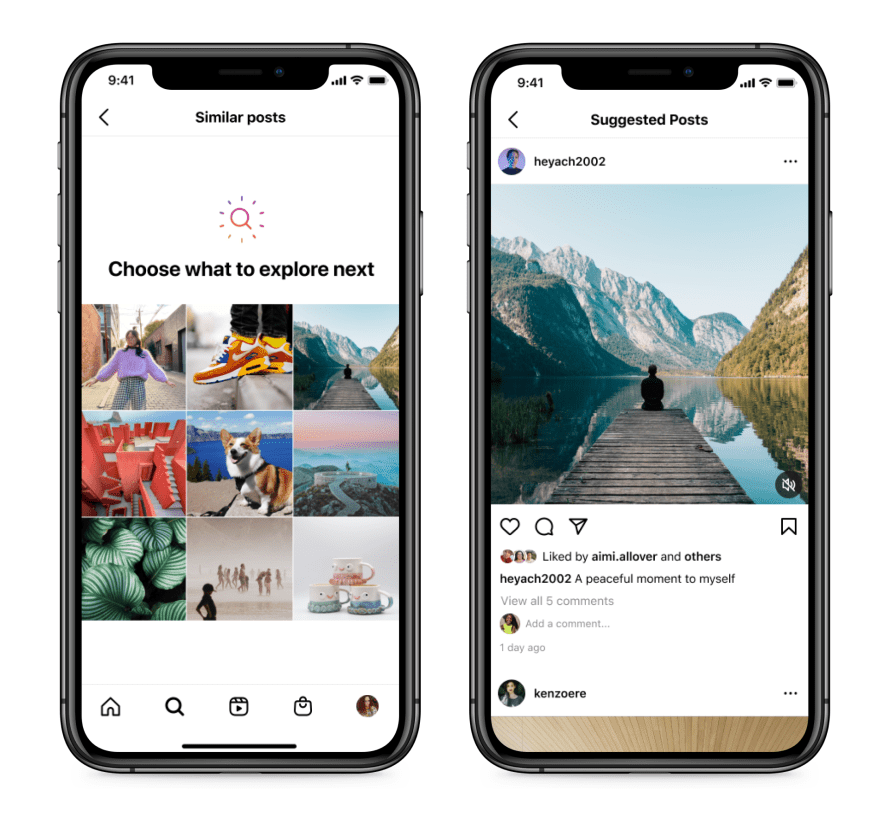
Image Credits: Meta
Social apps are taking a closer look at how they’re being used by teens and minors as regulatory pressure increases.
Last week, TikTok improved its protections for minor users when adding a new feature that allows users to remind themselves to “take a break” after watching videos for a certain amount of time on the app. As a part of this, the company also said it would notify younger teens on the app that the new tool was available if they had spent more than 100 minutes on TikTok the prior day.
This week, Instagram said it’s rolling out its own set of improvements to the teen experience. It’s expanding access to its existing parental control features outside the U.S. to users in the U.K., Japan, Australia, Ireland, Canada, France and Germany starting this month, and plans to make them globally available by year end.
In addition, Instagram will now allow parents and guardians to send invitations to teens to initiate the setup of supervision tools. Once enabled, they’ll be able to limit their teen’s usage of the app during specific times of day and days of the week. They’ll also be able to see more information when the teen reports an account or a post, including who they reported and the type of report. For parents who were already using parental controls in the U.S., the feature will be updated to include these new features.
Notably, Meta is also now taking a cue from last fall’s congressional line of inquiry into how Instagram’s algorithms could be leading teens to develop eating disorders as searches for healthy recipes push them down rabbit holes to content that encourages disordered eating, over-exercise and other things that could trigger negative body image issues. Instagram says it will roll out “nudges” in the app that encourage teens to switch to a different topic if it sees them repeatedly looking at the same type of content on the Explore page. This feature aims to help direct them away to content they may be obsessing over to discover something new. It also won’t nudge users toward content that’s associated with “appearance comparison,” the company said.
Of course, by limiting nudges to the Explore page, Instagram isn’t fully addressing the problem as users could still encounter this content while browsing their Feed, Stories or Reels. But in that case, the content is there because the user explicitly chose to follow someone — which is why parental monitoring of the time spent on the app remains important.
Sherlocks from Apple’s WWDC
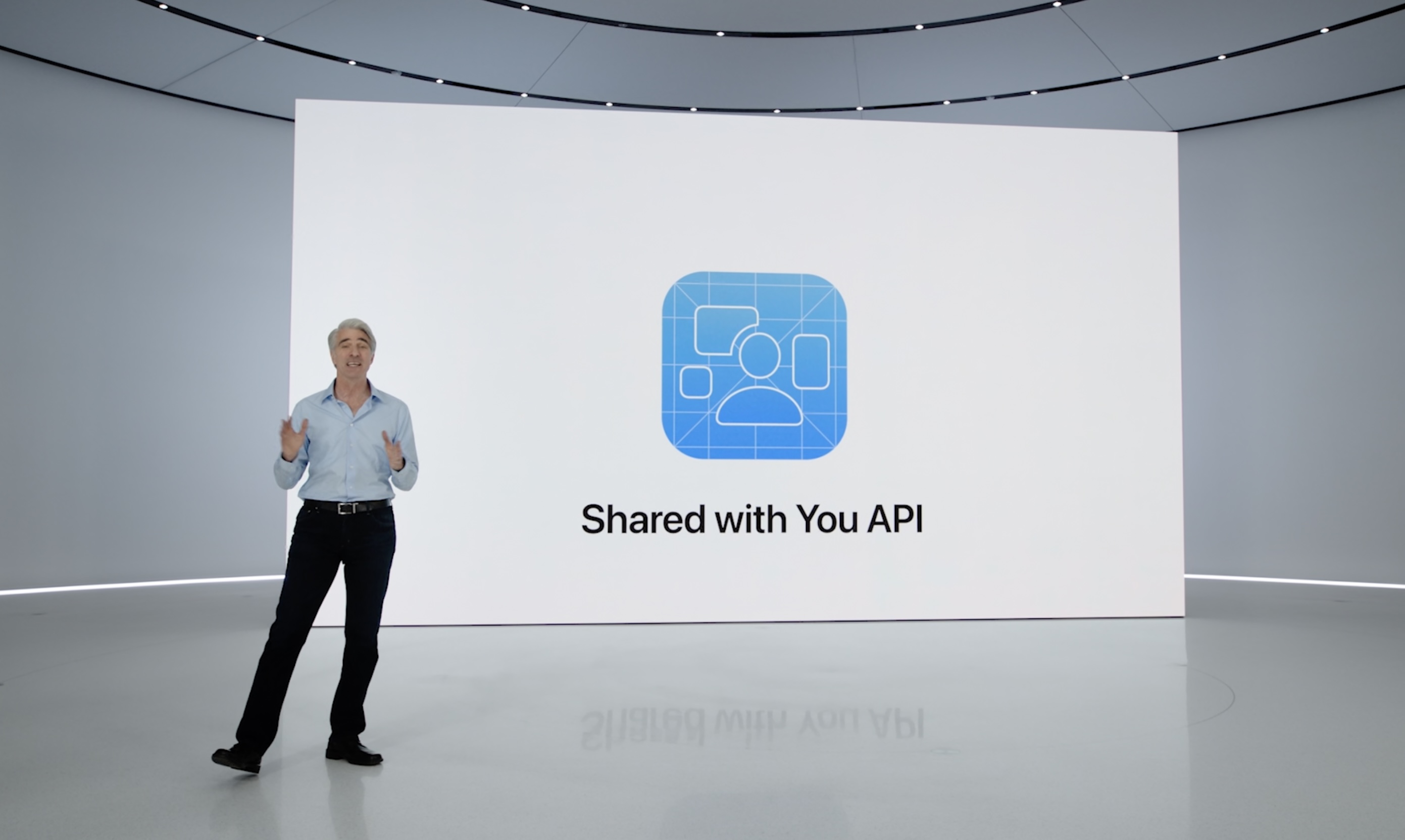
Image Credits: Apple
Apple introduced a number of new features and services across its platforms at this month’s Worldwide Developers Conference, but in doing so, the company appears to have once again pulled inspiration from the wider developer community. TechCrunch’s Ivan Mehta took a look at which apps got “sherlocked” during WWDC as a result. (The term refers to Apple’s old finder app called Sherlock which the company updated with features offered by a competitor, Watson. The move eventually put the latter out of business.)
This time around, Apple introduced a number of concepts popularized by other apps — like Continuity Camera, which seems to be inspired by companies like Camo, which had allowed users to use their iPhone as a computer webcam. This situation recalls how the makers of Duet Display and Luna had to refocus on serving a broader ecosystem after Apple introduced Sidecar in 2019 to offer a similar ability to use the iPad as a secondary display. Camo, too, will need to shift some of its focus to Windows and Android as Apple moves in on its market.
Other services that may see increased competition include: BNPL apps like Klarna and Afterpay, which will now go up against Apple Pay Later; apps for removing the background from photos, which is now a native iOS 16 feature; medication tracking apps, which will compete with a native Apple Health feature; Figjam and other collaboration tools, which will have a new first-party rival in the form of Apple’s Freeform; and sleep tracking apps, whose functionality has been added to Apple Health.

Image Credits: Apple (opens in a new window)
While this year was a particularly bad one for smaller startups that had seen an opportunity in the market, not everything Apple copies is a fully developed product. For instance, Camo saw the shift to online meetings in the wake of COVID was driving consumer demand for better webcams — and what better way to serve that market than to repurpose the excellent camera most people already carried as a smartphone? But, as Florian Mueller explained on the FOSS Patents blog this week, Camo was more of a feature than a product. And perhaps in those cases, developers should focus on patenting whatever feature it is they’ve come up with, rather than waiting for Apple to swoop in with an app or API that could significantly impact their business. At least then, some of their work could be compensated.
FOSS also noted, however, that there continues to be concern that apps delivering their software to users through Apple’s own App Store are inadvertently giving Apple access to valuable data about their customers and traction. Alternative app stores could help somewhat to alleviate this concern.
In fact, Apple’s “sherlocking” was a line of inquiry at last year’s antitrust hearing in the U.S. Senate, when a rep from Apple was asked whether there was a “strict firewall” or other internal policies in place that prevented them from leveraging the data from third-party businesses operating on their app stores to inform the development of their own competitive products. Apple had only offered vague responses as to whether or not it leveraged such App Store data for product development ideas.
“We don’t copy. We don’t kill. What we do is offer up a new choice and a new innovation,” Kyle Andeer, Apple’s chief compliance officer, had said at the time. He noted simply that Apple had “separate teams” and “controls in place” to avoid such issues.
TikTok relocates U.S. user data to Oracle
In a huge move, TikTok said it would move its U.S. users’ data to Oracle servers located in the U.S. at the same time BuzzFeed published a remarkable report indicating that TikTok’s U.S. data was regularly being shared with ByteDance colleagues in China. Concern over China’s access to TikTok had previously led the Trump administration to ban the app in the U.S. The ban was initially held up by the courts and the appeals were then put on pause when Biden came into office. All the while, TikTok had repeatedly said it would never hand over U.S. user data to anyone.
When the Trump ban was underway, TikTok had engaged in discussions with several tech companies to acquire its U.S. business if it was forced to spin it off. Oracle had been among the suitors, so it’s not surprising it was named in the new deal.
In recent days, TikTok had come under fire in media reports about its toxic workplace culture where employees were quitting because of being overworked — spending some 12 hours a day at their job due to requirements to align themselves with China’s business hours. The company was said to also reward the overworked and punish those who set more reasonable boundaries, as it seemed to enforce China’s 996 work schedule on non-Chinese employees. This dictates a schedule of working from 9 am to 9 pm, 6 days per week. A WSJ report also noted some U.S. employees said they had worked 85 hours per week on average, resulting in health concerns, stress, anxiety and emotional lows so severe they sought therapy.
More Reading

Image Credits: Bryce Durbin/TechCrunch
The next big social platform is the smartphone’s homescreen
This week, we took a deep dive into a new app trend involving social apps that are leveraging homescreen widgets to connect and engage with younger users who are looking for simpler, more private social networking apps that let them stay in touch with friends through casual photo-sharing. Read more here:
Weekly News
Platforms: Apple

Image Credits: Apple
- Apple announced new sessions of Apple Camp for children and families. The Apple Store program runs June 20-August 31 and will offer lessons about using Apple’s technology and apps to do things like make a digital comic book, take photos, use Apple Pencil to draw and more.
- With Apple’s upcoming release of iOS 16, users will now be able to remove 30 stock apps from their Apple devices, including Contacts, FaceTime, Clock, Camera, Find My, Health and others.
- Apple made a notable update to its Apple Developer Program that will now allow apps that use iCloud to be transferred to another developer without removing them from the App Store. This makes it easier for developers to sell apps or relocate them to another organization.
- The focus may be on iOS 16, but Apple is still working on the next version of iOS 15, as well. This week, the company rolled out iOS 15.6 beta 3 and iPadOS 15.6 beta 3 to developers.
Platforms: Google
- Google said it’s shutting down Google Assistant’s Conversational Actions in favor of App Actions for Android. Developers have 12 months to migrate to the Android-focused replacement for the older, voice-only features.
E-commerce

Image Credits: eBay
- eBay launched livestream shopping. The company announced the debut of eBay Live, a live shopping platform that allows users to interact with sellers in the chat and through reaction buttons, then purchase any items they like during the livestream. The service is currently in beta and available on the website and mobile app. The first event will see eBay taking on Whatnot with a curated selection of rare trading cards offered by eBay seller Bleecker Trading.
- Food delivery app JOKR is exiting the U.S. The company said it’s closing its New York and Boston locations by June 19 and leaving the U.S. market altogether in order to focus on Latin America.
- Grocery delivery app Instacart renamed its subscription service Instacart+. The service will continue as usual, with $9.99/mo or $99/yr tiers, but will also now gain Family Accounts that allow multiple members of a household to add items to a shared Family Cart.
Fintech
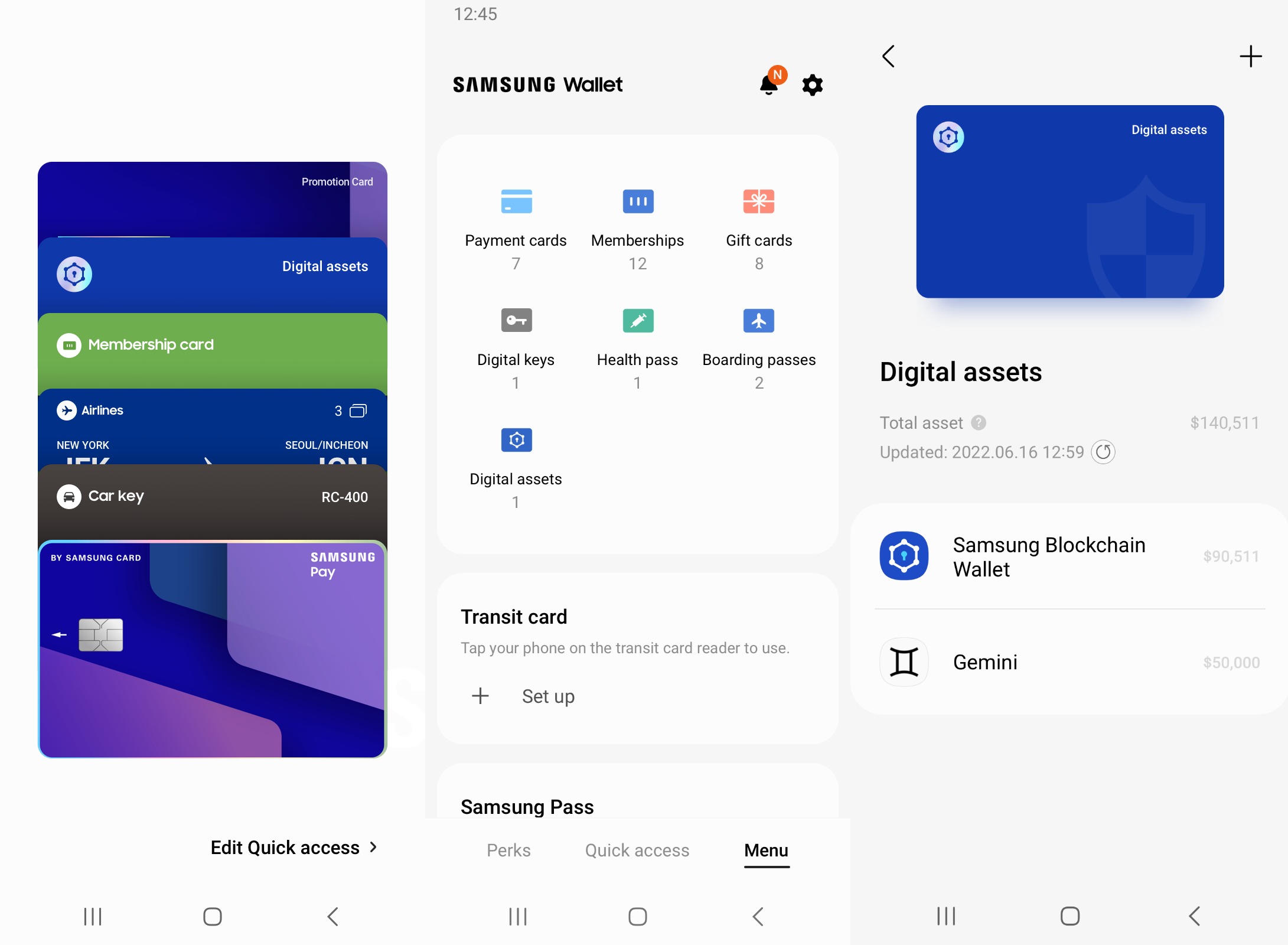
Image Credits: Samsung
- Samsung launched its new “Samsung Wallet.” The wallet app lets users store digital keys, boarding passes, identification cards and more, and combines Samsung Pay and Samsung Pass into one secure platform.
- A report suggests Apple’s new Apple Pay BNPL service — Apple Pay Later, available in Apple Wallet — may be related to its privacy push, as it would not involve sharing personal data with third parties.
- PayPal introduced another BNPL option called PayPal Pay Monthly, which lets shoppers split purchases of $199-$10,000 into monthly payments over a 6-24 month period, if they qualify. The company previously offered Pay in 4, which was for smaller purchases up to $1,500, split over four payments.
Social
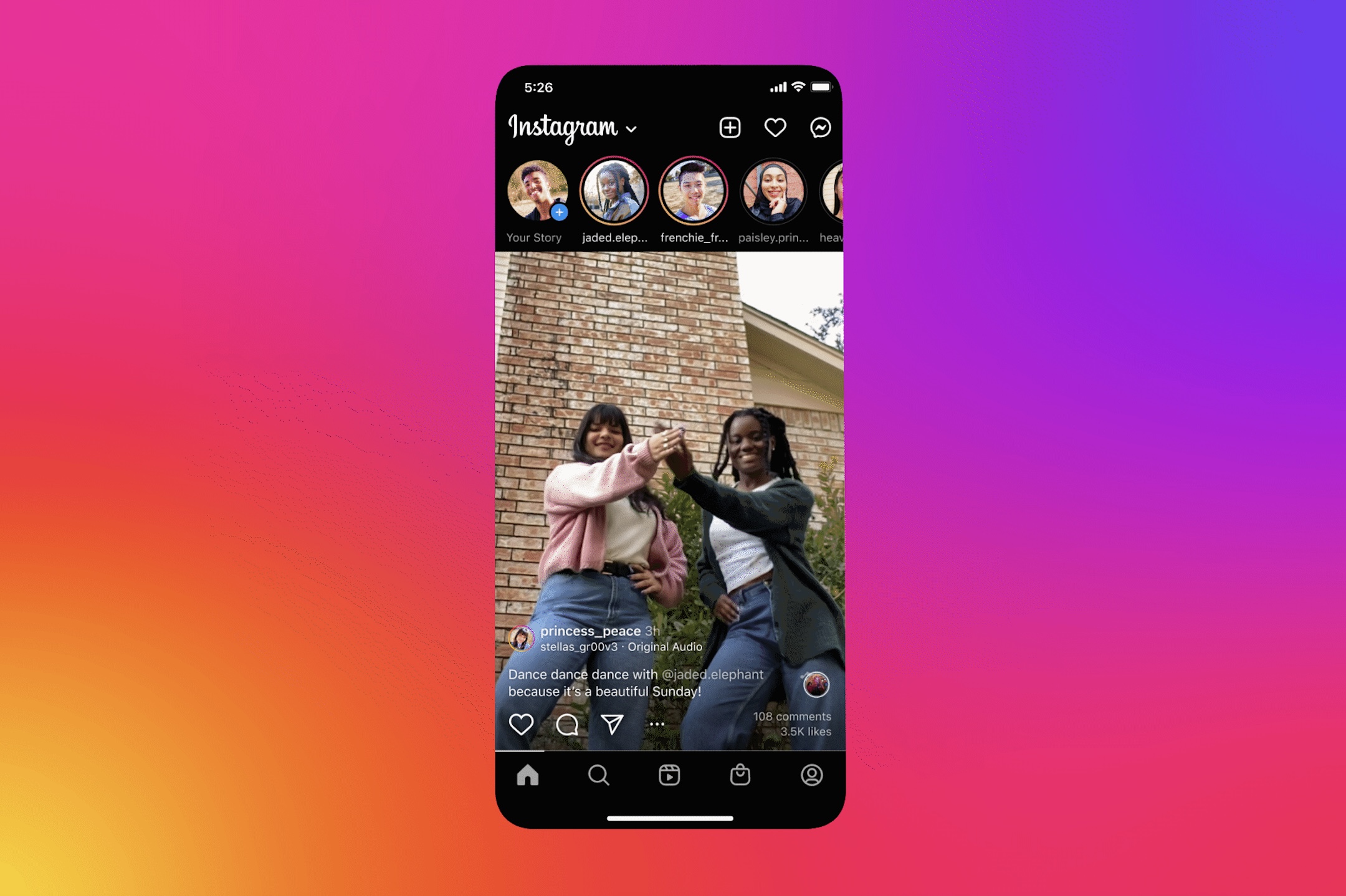
Image Credits: Instagram
- Instagram said it’s begun testing a new version of its full-screen feed, similar to TikTok’s, which aims to improve upon the way photos appear in this new format. The company said it will also use this experiment to try out changes to the navigation bar at the bottom of the Instagram app, where it will soon add shortcuts for creating a post — a button removed from the nav bar in 2020 — and another for accessing messages. Instagram had been testing a different version of the full-screen feed before now, but had been met with negative feedback.
- An internal memo provided to The Verge said Meta is planning to make Facebook more like TikTok, including by bringing Messenger back into the app and recommending posts from unconnected sources.
- Snapchat is experimenting with a subscription service. The company is testing Snapchat+, which would give users early access to experimental features like pinning certain conversations and exclusive icons and badges.
- TikTok is testing a feature that lets you see which followers have viewed your posts. People you follow will be able to see that you viewed their posts, too. The company has made the test available to a limited audience, but it may not be welcomed by all users.
- Twitter is now allowing local businesses to display their location, operating hours and contact info on their Twitter Professional profiles.
- Pinterest is turning Idea Pins into ads. The feature has allowed Pinterest creators to tell their stories using a combination of video, images, music and other editing tools, resulting in something that’s a cross between TikTok’s short videos and a Stories product with multiple pages of content. Now, Pinterest is opening up this new format to its advertisers with the launch of its new “Idea Ads.”
Messaging
- Apple and WhatsApp announced that Apple’s Move to iOS app will now allow users to transfer their WhatsApp chat history, photos, and voice messages from Android to iPhone when switching between devices, while keeping e2ee. Before, users could only transfer chats from iPhone to Android. The feature is rolling out in beta and will take a week or so to reach all users.
- Messaging app Telegram’s CEO Pavel Durov, writing on his Telegram channel, accused Apple of limiting competition by banning other browsers on iOS beyond those that are WebKit-based. The comments follow news that the U.K.’s CMA was looking into this area due to possible anti-competitive concerns. “I think it’s an accurate summary [by the CMA] and hope that regulatory action will follow soon,” Durov said. “It’s sad that, more than ten years after Steve Job’s death, a company that once revolutionized mobile web turned into its most significant roadblock.”
Dating
- A ban on dating apps in Pakistan has sent users flocking to Facebook Groups. The country banned apps like Tinder, Grindr and Skout in September 2020, leading to local Facebook matchmaking groups gaining tens of thousands of members.
- Dating app Bumble has been pushing for legislation across multiple U.S. states that would criminalize what it calls cyberflashing — the sending of unwanted sexual images to another person online. The company previously helped pass a bill in Texas that made sending lewd photos without the consent of the recipient a class-C misdemeanor, The NYT said.
Streaming & Entertainment
- YouTube Music takes on Spotify’s Wrapped with a new feature called seasonal recaps — a culmination of your top artists, songs, albums and playlists. A “Spring Recap” will be the first recap that users can try. The streaming service had first introduced a Wrapped-like feature called Recap as a year-end review.
- YouTube added a “corrections” feature that will allow creators to add a note to the video’s description or pin a comment with the correction after the video is uploaded.
- Pirate streaming apps were spotted beating out traditional streamers like Netflix and Disney+ on the Top Charts in the Play Store in Brazil. The apps have a lot of traction. One app, Cine Vision V5, has more than 5 million downloads and 82,000 reviews.
- Spotify said it would slow its hiring by 25% after adding 2,000+ staff from 2019-2021. The company’s total headcount is now 6,617.
- Spotify also announced the formation of a Safety Advisory Council to help it make better decisions about content moderation. The effort follows the controversies that arose over its hosting of the Joe Rogan podcast which helped spread medical information related to COVID-19 vaccines, prompting a backlash.
- Apple’s TV app will become the exclusive destination to watch every single live MLS match beginning in 2023 thanks to a new partnership with Major League Soccer (MLS).
Gaming
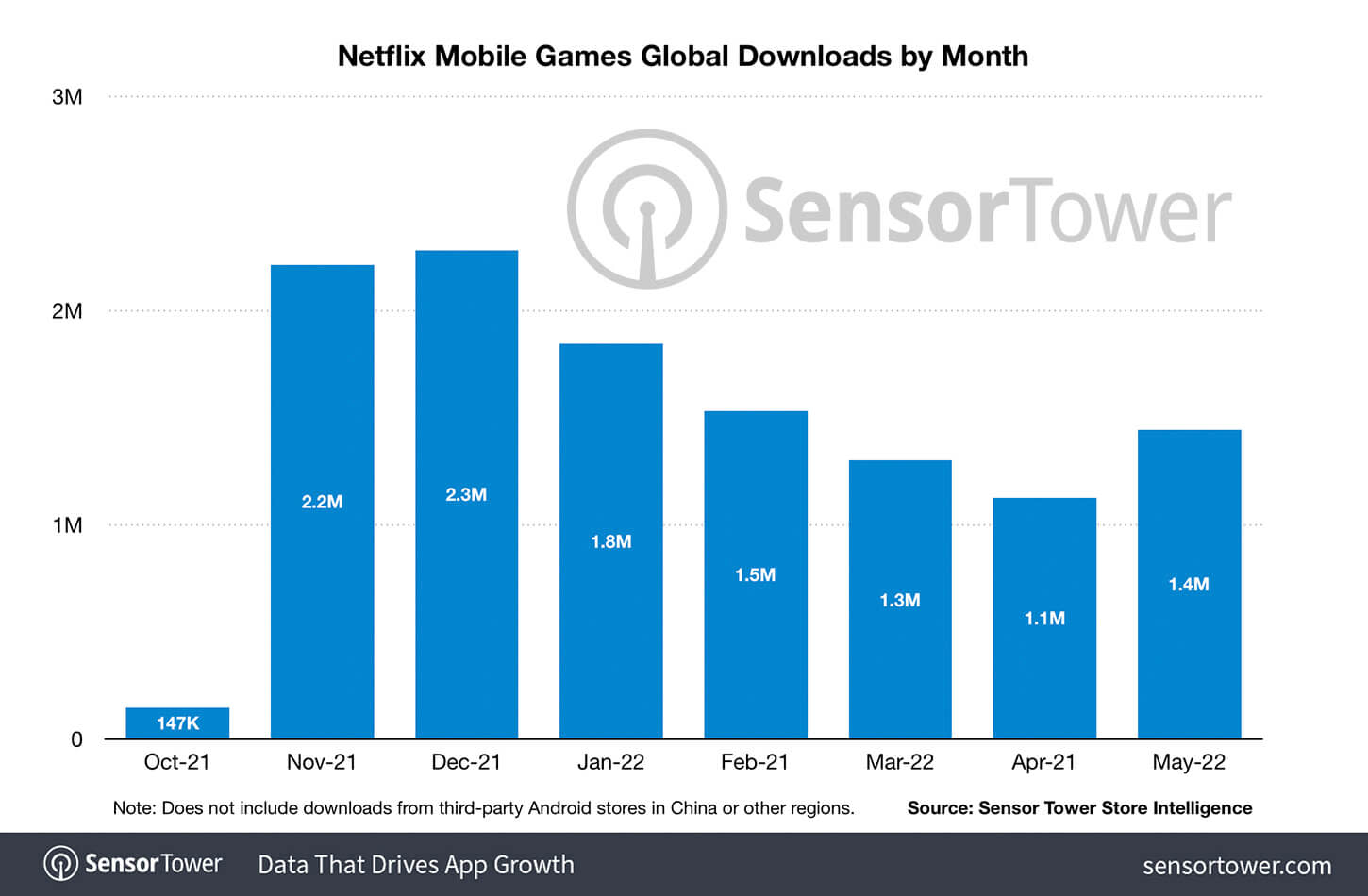
Image Credits: Sensor Tower
- Netflix’s venture into mobile gaming has generated 13 million downloads, according to a report from Sensor Tower. The company now has 24 mobile titles and is preparing to launch others, including The Queen’s Gambit Chess, Shadow and Bone: Destinies, and Too Hot To Handle, which tie into Netflix series. To date, the most popular game is Stranger Things 1984, which has close to 2 million downloads. Asphalt Xtreme ranks No. 2 with 1.8 million installs, and Stranger Things 3: The Game ranks No. 3 with 1.5 million. (These don’t include the games’ original release downloads before they were Netflix-owned.) Netflix games are now being downloaded at a rate of more than 1 million installs per month, the report found.
Health & Fitness
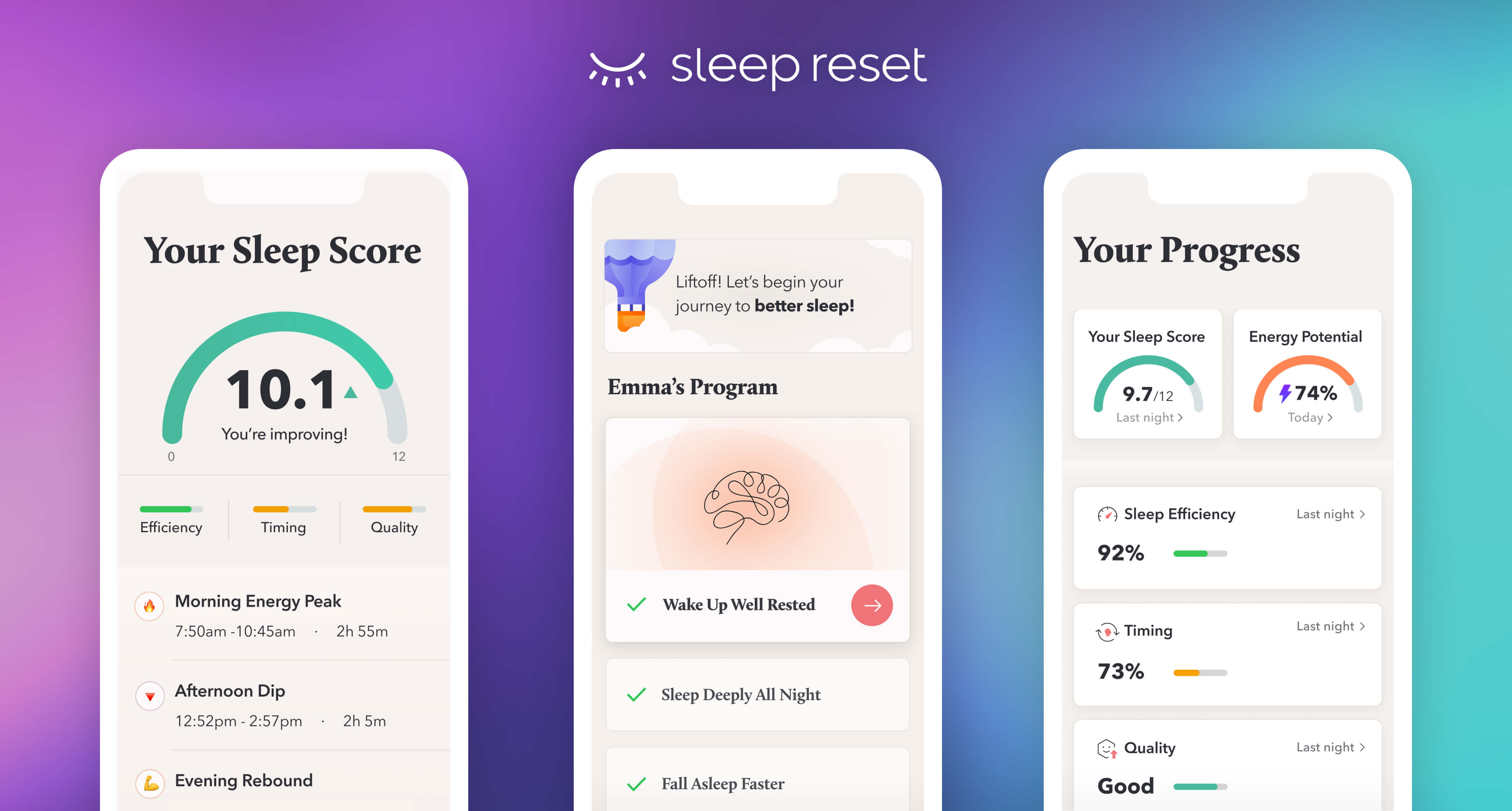
Image Credits: Sleep Reset
- Sleep Reset is a new app from meditation app Simple Habit’s founder, Yunha Kim, which helps users improve their sleep. The app aims to bring the same treatment you’d otherwise receive in sleep clinics — such as Cognitive Behavioral Therapy for Insomnia (CBT-I) — to mobile devices.
Travel & Transportation
- Google Maps introduced a new feature for Android users that now shows live traffic around you not just in the app but in a widget you can access on your lock screen. The feature follows Apple’s introduction of Live Activities on the iOS 16 Lock Screen. It also rolled out a new feature that shows the total toll prices for a trip.
- London-based Waymap is introducing an app to help visually impaired people to navigate their surroundings, starting with public transit. The company wrapped trials of its navigation app at three stops within Washington, D.C.’s Metro, and hopes to begin a public trial at 25 Metro stations and 1,000 bus stops by September.
Productivity
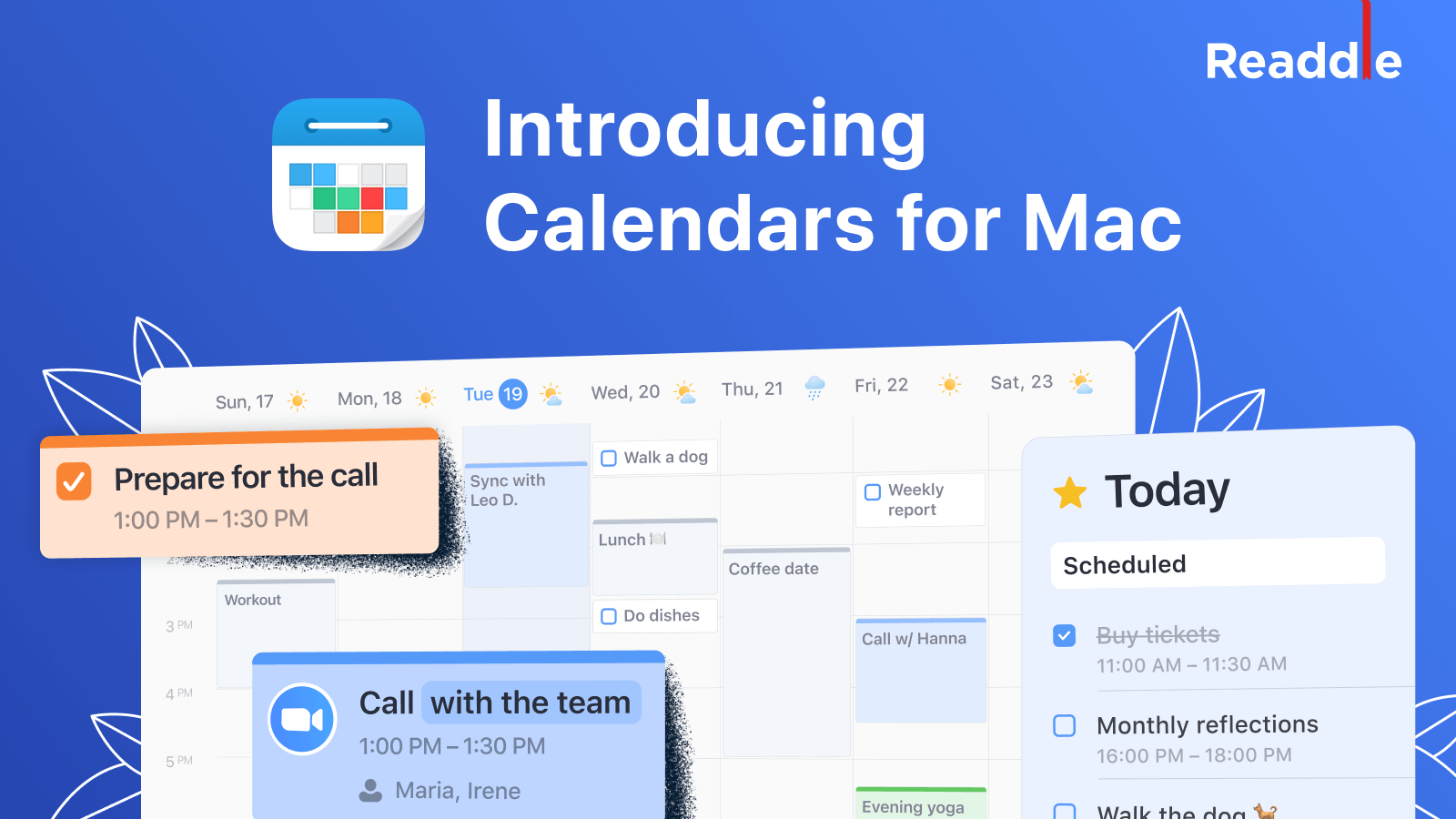
Image Credits: Readdle
- Readdle now offers its popular iOS Calendars app for the Mac. The app includes other useful features, like to-dos, weather, meeting integrations (e.g. Zoom, Meet, GoToMeeting), color-coding, natural language event creation and more. It works with calendar providers like Google, Outlook, iCloud and others. The Pro plan is $19.99/year and unlocks all the features across Mac, iPad, iPhone and Apple Watch.
- Google officially shuts down Google Talk. After June 16, anyone trying to use the app will get an error message. Users are being pushed to Google Chat instead, which is available on web and mobile.
Government & Policy
- Social app makers and big tech co’s, including Facebook, Twitter, TikTok, Google and others, have agreed to new EU rules focused on fighting disinformation on their platforms. Among the 44 commitments they’ve agreed to are those focused on creating libraries for political ads, demonetizing fake news sites, reducing bots/fake accounts, offering more tools for flagging disinformation and accessing authoritative sources, giving researchers more access to platforms’ data, and more.
- Meta (then Facebook)’s acquisition of GIF startup Giphy may be revisited. The U.K.’s competition authority may have to look again at the decision to approve the merger after the country’s Competition Appeal Tribunal (CAT) endorsed the regulator’s finding that the deal could harm competition, Reuters said.
- Germany’s Federal Cartel Office (FCO), its antitrust watchdog, announced it’s investigating Apple’s App Tracking Transparency (ATT) framework over concerns that the company could be breaching competition rules by self-preferencing or creating unfair barriers for other companies.
- The Netherlands’ competition regulator said Apple’s latest changes to its App Store Rules, which now allow dating app makers to choose alternative payment methods, now meet local and EU competition requirements.
Funding and M&A
 Indian esports fantasy app FanClash raised $40 million in Series B funding led by Alpha Wave Global, formerly known as Falcon Edge Capital. Users compete across several titles, including Counter Strike: Go, FreeFire and League of Legends. The company is now experimenting with expanding in the Philippines.
Indian esports fantasy app FanClash raised $40 million in Series B funding led by Alpha Wave Global, formerly known as Falcon Edge Capital. Users compete across several titles, including Counter Strike: Go, FreeFire and League of Legends. The company is now experimenting with expanding in the Philippines.
 Mobile gaming platform VersusGame raised $25 million in a new funding round with a number of investors, including Apex Capital, Brightstone Capital Partners, Feld Ventures and others. The startup has content creators pose “prediction contests” to viewers, who can win cash and prizes. It has previously worked with BuzzFeed, Billboard, ESPN, UFC and others.
Mobile gaming platform VersusGame raised $25 million in a new funding round with a number of investors, including Apex Capital, Brightstone Capital Partners, Feld Ventures and others. The startup has content creators pose “prediction contests” to viewers, who can win cash and prizes. It has previously worked with BuzzFeed, Billboard, ESPN, UFC and others.
 Reddit is acquiring machine learning startup Spell for an undisclosed sum. The startup was founded by former Facebook engineers to provide a cloud computing solution that allows anyone to run resource-intensive ML experiments without the high-end hardware that would normally be necessary. Reddit could use the ML to improve its personalized recommendations and its Discover tab.
Reddit is acquiring machine learning startup Spell for an undisclosed sum. The startup was founded by former Facebook engineers to provide a cloud computing solution that allows anyone to run resource-intensive ML experiments without the high-end hardware that would normally be necessary. Reddit could use the ML to improve its personalized recommendations and its Discover tab.
 Spotify closed its acquisition of audiobook company Findaway, announced last November. The company cited the potential for its expansion into audiobooks, noting the market is expected to grow from $3.3 billion to $15 billion by 2027.
Spotify closed its acquisition of audiobook company Findaway, announced last November. The company cited the potential for its expansion into audiobooks, noting the market is expected to grow from $3.3 billion to $15 billion by 2027.
 Food delivery app Wonder, led by Marc Lore, raised $350 million in a new round led by Bain Capital Ventures at a $3.5 billion valuation, bringing its total raise in equity and debt to $900 million. Lore previously sold Quidsi (Diapers.com) to Amazon, then Jet.com to Walmart, where he stayed to lead its U.S. e-commerce business for years. Wonder is now looking to bring local restaurants and food truck deliveries to consumers’ homes.
Food delivery app Wonder, led by Marc Lore, raised $350 million in a new round led by Bain Capital Ventures at a $3.5 billion valuation, bringing its total raise in equity and debt to $900 million. Lore previously sold Quidsi (Diapers.com) to Amazon, then Jet.com to Walmart, where he stayed to lead its U.S. e-commerce business for years. Wonder is now looking to bring local restaurants and food truck deliveries to consumers’ homes.
 Edtech company Pok Pok, which spun out of Snowman (Alto’s Adventure, Alto’s Odyssey) raised $3 million in seed funding led by Konvoy to expand its play-based learning experiences for kids. The company’s Pok Pok Playroom app is designed to help kids learn through digital play using open-ended toys which, unlike mobile games, don’t have a goal to achieve, points or other gaming elements.
Edtech company Pok Pok, which spun out of Snowman (Alto’s Adventure, Alto’s Odyssey) raised $3 million in seed funding led by Konvoy to expand its play-based learning experiences for kids. The company’s Pok Pok Playroom app is designed to help kids learn through digital play using open-ended toys which, unlike mobile games, don’t have a goal to achieve, points or other gaming elements.
 Indonesian consumer payments app Flip raised $55 million in Series B funding in a round led by Tencent, with participation from Block (formerly Square) and existing investor Insight Partners. The company has helped more than 10 million people in Indonesia as of May this year, up from more than 7 million users in December 2021. Its app lets users perform interbank transfers to more than 100 domestic banks, use an e-wallet, and create international remittances.
Indonesian consumer payments app Flip raised $55 million in Series B funding in a round led by Tencent, with participation from Block (formerly Square) and existing investor Insight Partners. The company has helped more than 10 million people in Indonesia as of May this year, up from more than 7 million users in December 2021. Its app lets users perform interbank transfers to more than 100 domestic banks, use an e-wallet, and create international remittances.
 Onymos, a “feature-as-a-service” platform for app development, raised $12 million in Series A funding led by Great Point Ventures. The startup offers off-the-shelf features that can be added to apps like login, biometrics, chat, data storage, location services, notification modules, underlying logic and server-side functions needed to process data in the cloud.
Onymos, a “feature-as-a-service” platform for app development, raised $12 million in Series A funding led by Great Point Ventures. The startup offers off-the-shelf features that can be added to apps like login, biometrics, chat, data storage, location services, notification modules, underlying logic and server-side functions needed to process data in the cloud.
Downloads
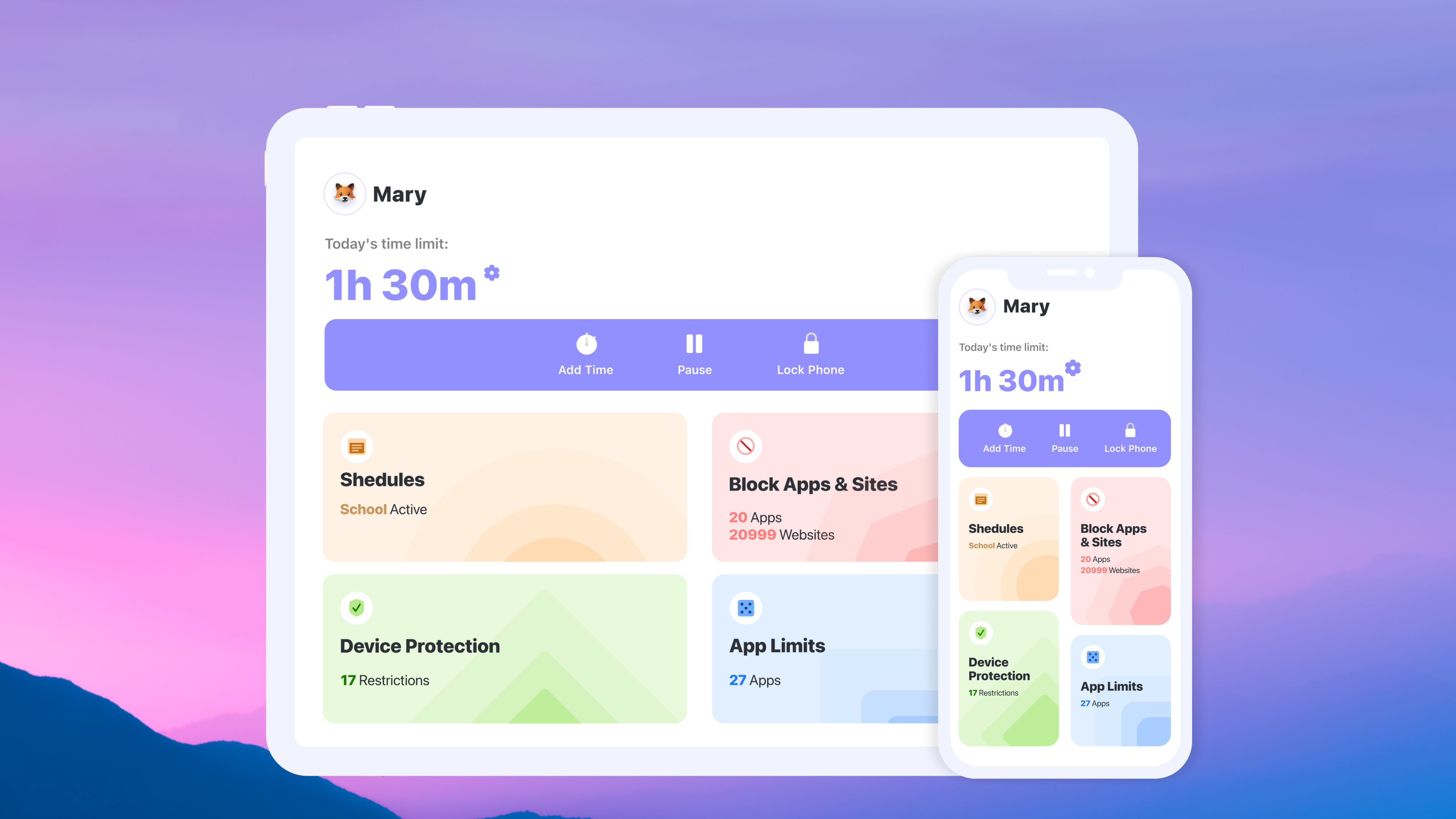
Image Credits: Grace
A new startup called Grace launched an app to make it easier for parents to monitor and manage their kids’ screen time and app usage on iOS devices. Although Apple offers built-in parental controls, many parents would prefer an app-based solution as opposed to having to dig around in the settings for Apple’s tools. In addition, Grace offers more customization over kids’ screen time schedules. With Apple’s controls, parents can only configure start and stop times for “Downtime,” for instance, as opposed to being able to set other times when app usage should be limited, like school hours, family dinner time, homework time and more.
Grace is also notable for being one of the first to arrive that’s built with Apple’s Screen Time API, introduced at Apple’s Worldwide Developer Conference last year. The new API allows developers to create an interface that works with Apple’s built-in tools in order to expand their functionality.
You can read more about Grace here:
from TechCrunch
via Click me for Details

No comments:
Post a Comment